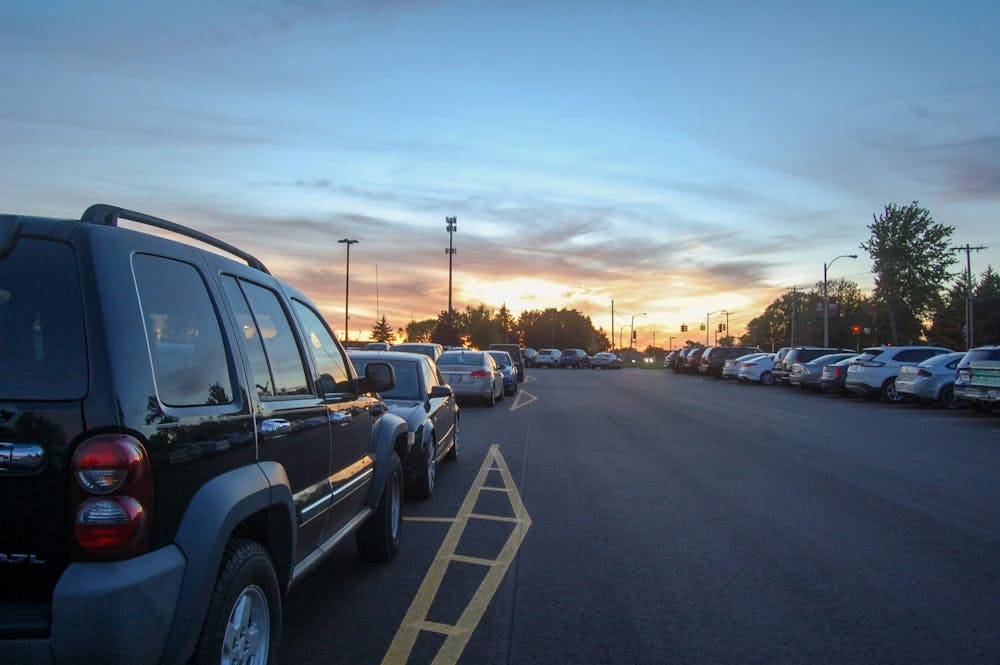
Welcome to campus. You pull in, car jam-packed with everything you will need for a successful year and are greeted by … parking lots.
Lots and lots of parking lots.
Each one with a sign identifying what type of permit is necessary in order to park there legally.
Say what?
Central Michigan University has a parking system that is -- "complicated" seems like a reasonable word -- so let's break it down to keep you from paying extra fines.
We get it, you're busy. If you have time to read no further, take these next few points to heart:
First and foremost, the permitting system. Central Michigan University has a two-year, live-in policy for most first- and second-year students. For many new arrivals, that will mean getting either a Maroon Permit or a South Permit. The cost is the same for each; the difference depends on the amount of credit hours you're bringing to college with you.
Here's the breakdown:
CMU also has its share of parking meters in place for those who want to just run onto campus for a short visit, without having to get a guest pass or pay for a full-scale permit.
For those who are interested in hanging out longer than two hours, but no more than four, Pango may be the best option. Here's the deal, though, it requires a mobile app to use. Search "Pango Parking" in your device's app store.
With beautiful, winding trails and virtually no topographical change (we're still searching for the Mount in Mount Pleasant - let us know if you find it, please!), middle Michigan is a perfect spot for cyclists … roughly six months out of the year.
If your transportation plans involve pedaling rather than putting the pedal to the metal, bicycles are definitely welcome on campus. Buildings have bike racks located outside and the campus thoroughfares are definitely wide enough for some safe cycling.
However, take note that your bike must be registered with the CMU PD for the safety and security of you and your property.
When it comes to getting around campus on a beautiful day, no doubt the Bird is the word. Micro-mobility options like electronic skateboards and scooters are increasingly popular forms of personal transport. But, of course, there are some tips to keep you safe:
· The on-campus speed limit is strictly enforced at 10 mph. (In fact, if you're riding a campus-owned scooter, the devices are programmed to self-limit at 10 mph so good luck breaking the law there!)
· Micro-mobility devices must be parked at bike racks or designated parking corrals on campus.
· They are strictly prohibited from being brought into, charged within or stored inside any university building, including dorm rooms!
· Personal devices must be registered with a CMU parking services bicycle permit.
If this is all feeling a bit overwhelming, you're not alone. For full details, the CMU Parking website is cmich.edu/about/campus-safety/cmu-police/parking-services.
You can also contact the Parking Services Office between 7:30 a.m. and 5 p.m. Monday through Friday (7:30 a.m. to 4 p.m. during the summer) at 989-774-3083 or parking@cmich.edu.
The office is located in the Combined Services Building at 1720 E. Campus Drive.
For after-hours help or police assistance, call the Police Dispatch center at 989-774-3081 or police@cmich.edu. CMU PD's lost and found can be contacted at 989-774-1835 or cmulostfound@cmich.edu.
When in doubt, ask. Yes, they're cops and there are lots of rules, but above all, they're awfully nice and here to help you stay safe, secure and on the right side of the traffic law.